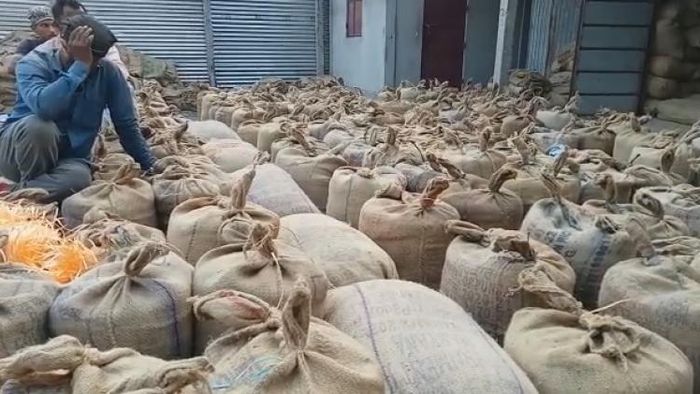Assam: Farmers upset over delay of payments in paddy procurement centre in Bijni
The farmers claim that they are being cheated by the officials of the procurement centre and demanded higher authorities to look into the matter.

- Jan 20, 2023,
- Updated Jan 20, 2023, 2:39 PM IST
Farmers in Bijni on January 19 have expressed displeasure over the paddy procurement centre officials entrusted by the agriculture department. The farmers claim that they are being by the concerned authorities of the procurement centre.
The farmers said that they are not paid for the paddy, they have sold even after one months. They claim that they should get the fair price for the paddy sold within 24 to 48 hours but the case is quite different at the collection centre.
The farmers claim that they are being cheated by the officials of the procurement centre and demanded higher authorities to look into the matter.
“I have sold my paddy here last month. But, I have not received money till now. This is very upsetting and it has caused a lot of problems to us.” a farmer said.
“The officials said that we will get the money in a week long time. But, it’s been more than a month and still we are waiting for the money. We request the government to intervene into the matter. The officials are giving us new dates every other day. Now, we know that we are being cheated. “, another farmer said.
Notably, Earlier on January 19, Chief Minister Himanta Biswa Sarma informed that Paddy procurement for KMS 2022-23 crossed the figure of 1 lakh MT in Assam this season, benefitting farmers of the state. Notably, it is huge progress from 2021-22 Kharif season when the figure was achieved only on 16th March.
In a facebook post, the Chief Minister said " Farmers' interest is foremost for us!
Happy to share that today we crossed the figure of 1 lakh MT in paddy procurement from our farmers.
It's a huge progress from 2021-22 Kharif season when the figure was achieved only on 16th March."
Earlier, in September , 2022 Paddy procurement in Assam scripted an all-time high record during the 2021-20 Kharif season. Various agencies procured around five lakh MT (metric tonnes) of paddy from the state this season, benefitting around 43,000 farmers. The sales of paddy in 2022 got a boost with the State Government launching a portal that enables the farmers to express their willingness to sell paddy.